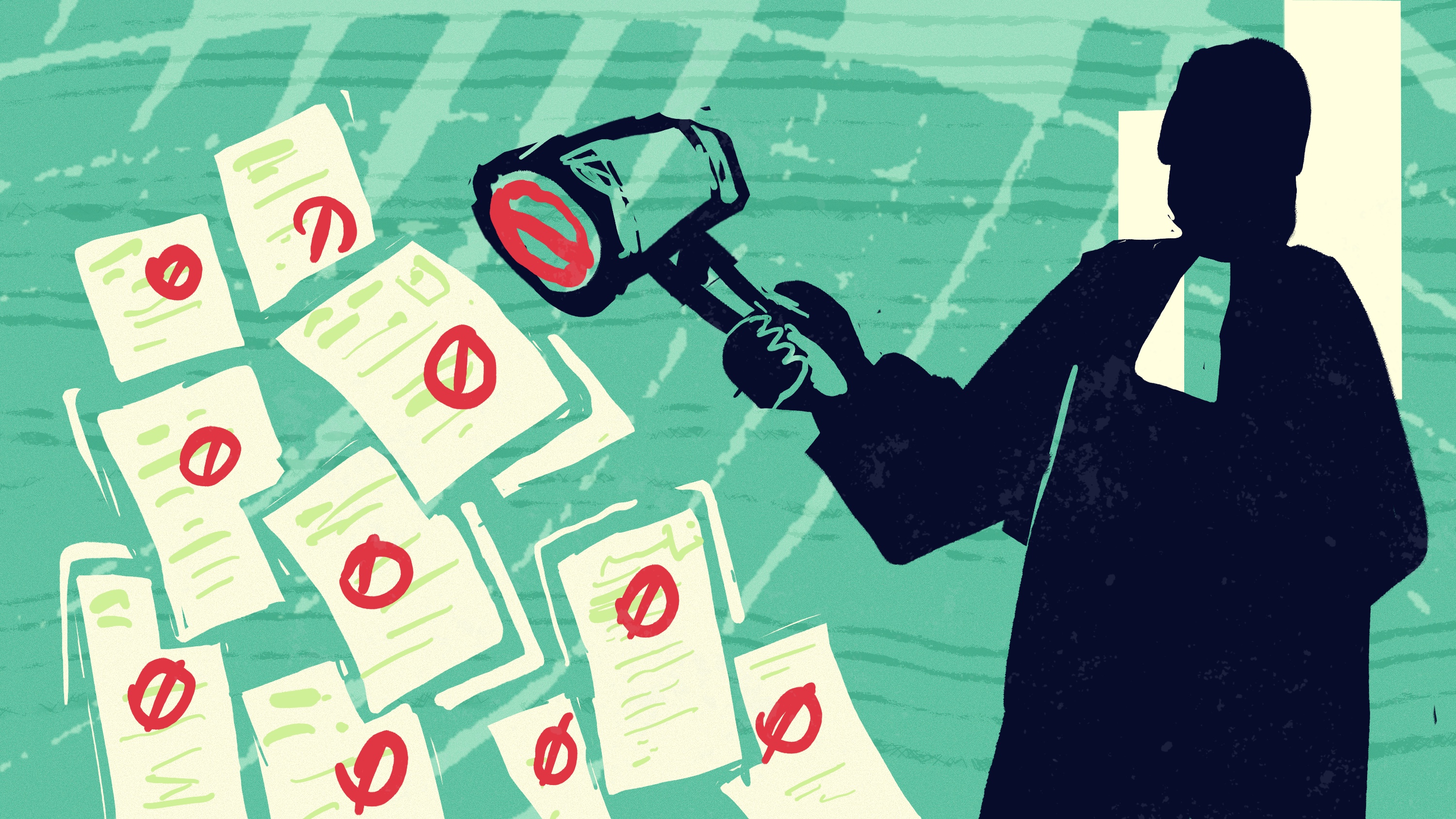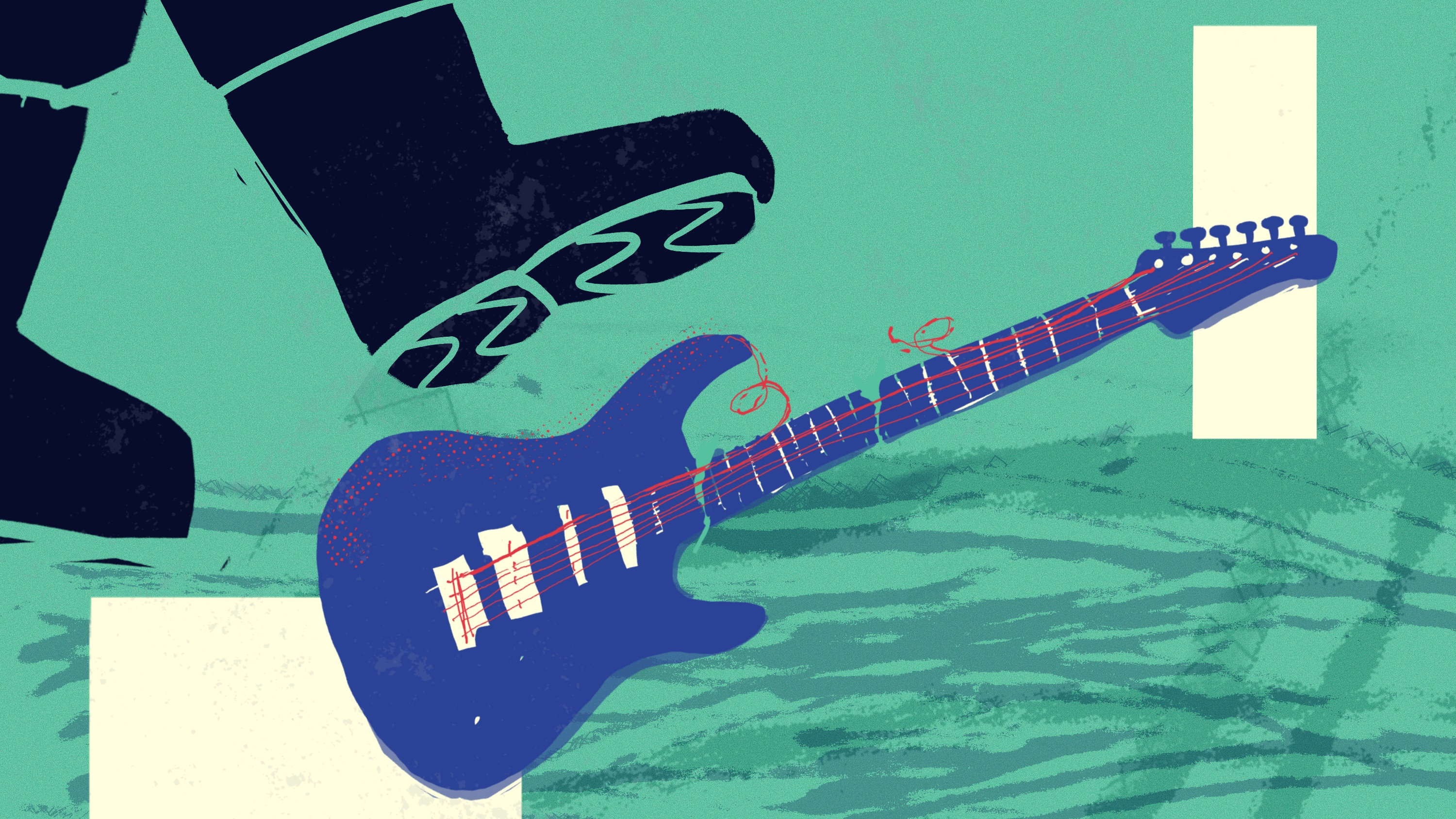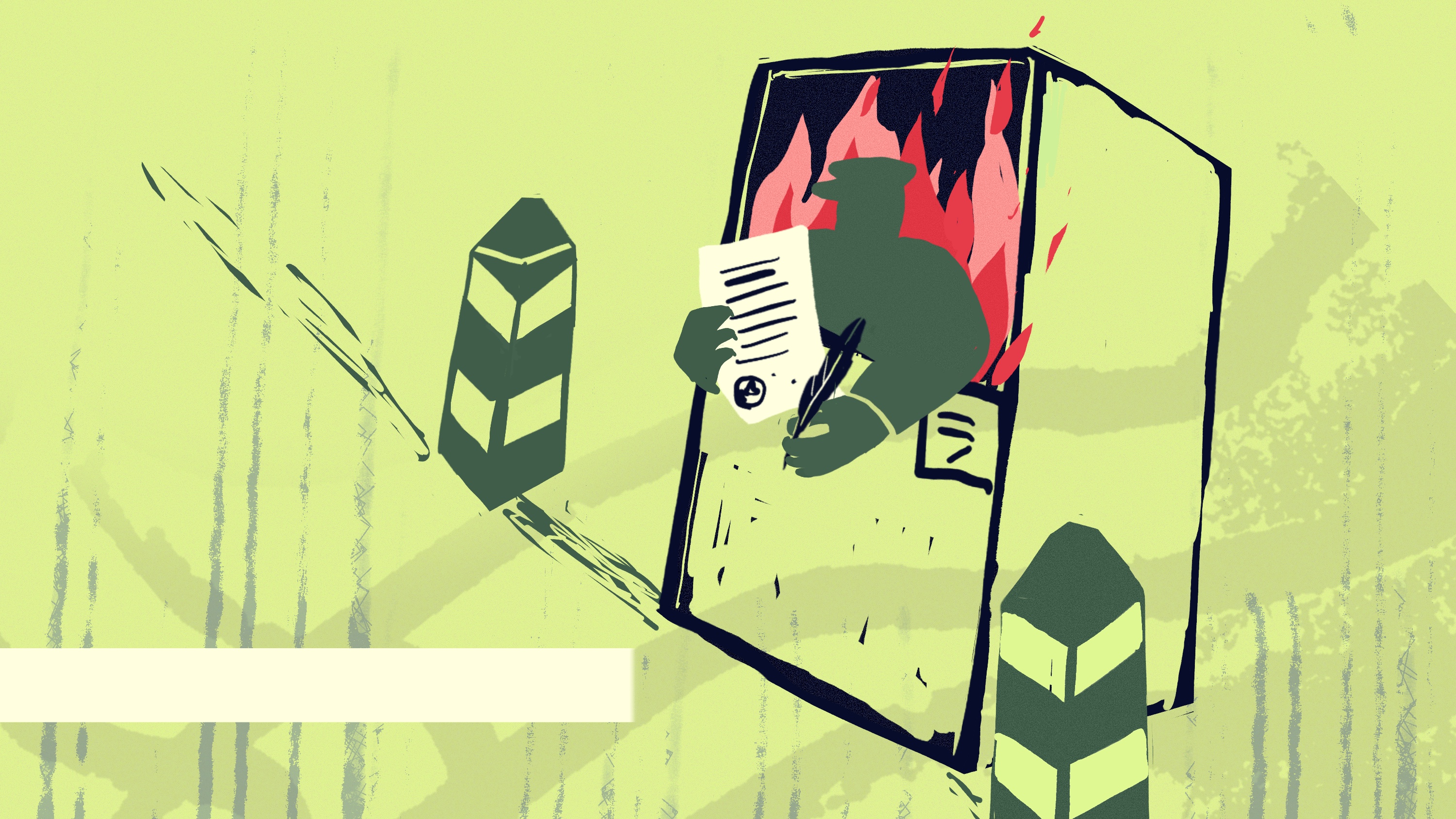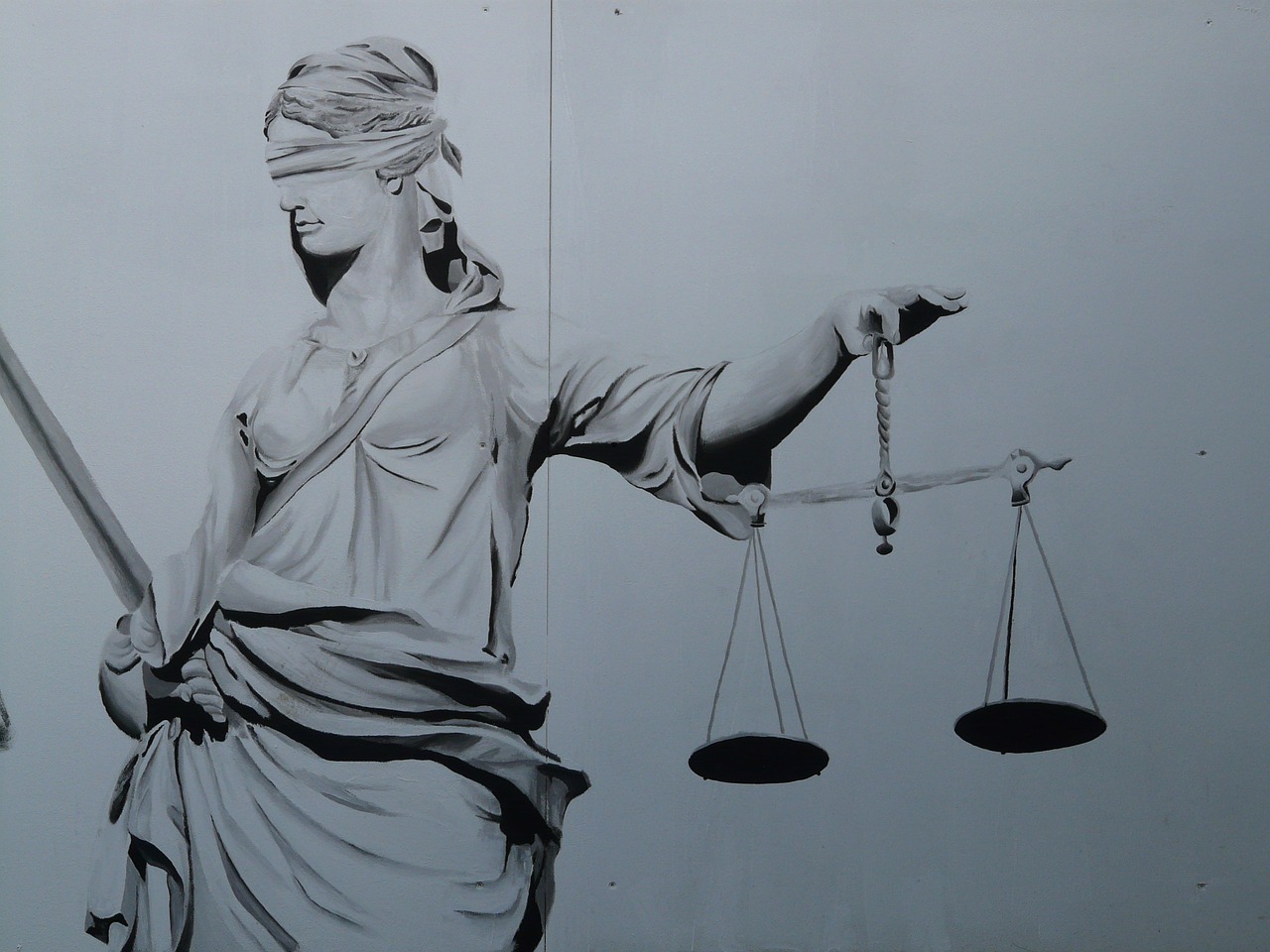18 December 2023
The 2023 results
We tell you which services are included in the register of prohibited information and who makes censorship decisionsWe tell you which services are included in the register of prohibited information and who makes censorship decisionsWe tell you which services are included in the register of prohibited information and who makes censorship decisionsWe tell you which services are included in the register of prohibited information and who makes censorship decisionsWe tell you which services.

January
Electronic summonses 1
The State Duma abruptly passed a law on electronic summonses, which came into force immediately after being signed by the President. The new law allows a summons to be sent to a person liable for military service in several ways: personally or by registered letter, or in electronic form. An electronic summons is considered to have been served from the moment it is placed in the citizen’s personal account on the relevant information resource or information system.
The law provides for the creation of two registers: the military registry, where the entire list of data of a citizen subject to military service will be collected; and sent (served summonses). A person who has received a summons by any means cannot leave the country. Then, according to the amendments, within 20 days it is necessary to appear in the military enlistment office, and in case of non-appearance the citizen is deprived of the right to work as an individual entrepreneur or self-employed, to receive loans, to register real estate or motor vehicles.
If a summons has not been served, it is considered served after seven days from the date of its placement in the register of summonses. Information from the register of subpoenas will be available on the register’s website itself, on Gosuslugi and when visiting a MFC.
Repressive package of laws
The State Duma passed laws: on criminal liability for assisting international bodies whose decisions contradict Russian ones; life sentence for treason (and it can be interpreted very broadly); deprivation of acquired citizenship for “discrediting” the army.
Many media outlets and opposition politicians link the first law, which provides for up to 5 years in prison, to the issuance of an arrest warrant for Vladimir Putin by the International Criminal Court (ICC) in The Hague.
As for the second law, human rights activists say that it has a very broad interpretation, and it is not necessary to help Ukraine or donate to the Ukrainian armed forces. One can become a “traitor” for correspondence with foreigners, for advice to surrender, for criticizing the authorities and the army at international forums, for working as a journalist on military-industrial complex-related topics, etc.
The third law only expands the list of punishments under the norms adopted last year.
ECHR commenced the first cases of “discrediting” the army
Complaints to Strasbourg were filed by Arina Popova and Nikita Mamaev, who were fined 30,000 and 40,000 rubles by Russian courts for participating in anti-war protests (in Mamaev’s case, it is separately noted that he went to the square “at the time specified as the time of the public event in the Telegram channel”).
On March 15, 2022, Russia withdrew from the Council of Europe, after which it ceased to be subject to the jurisdiction of the ECHR, but the court continued to consider cases of violations that took place before that date.
What happened next


February
Electronic summonses 2
The State Duma abruptly passed a law on electronic summonses, which came into force immediately after being signed by the President. The new law allows a summons to be sent to a person liable for military service in several ways: personally or by registered letter, or in electronic form. An electronic summons is considered to have been served from the moment it is placed in the citizen’s personal account on the relevant information resource or information system.
The law provides for the creation of two registers: the military registry, where the entire list of data of a citizen subject to military service will be collected; and sent (served summonses). A person who has received a summons by any means cannot leave the country. Then, according to the amendments, within 20 days it is necessary to appear in the military enlistment office, and in case of non-appearance the citizen is deprived of the right to work as an individual entrepreneur or self-employed, to receive loans, to register real estate or motor vehicles.
If a summons has not been served, it is considered served after seven days from the date of its placement in the register of summonses. Information from the register of subpoenas will be available on the register’s website itself, on Gosuslugi and when visiting a MFC.
Repressive package of laws
The State Duma passed laws: on criminal liability for assisting international bodies whose decisions contradict Russian ones; life sentence for treason (and it can be interpreted very broadly); deprivation of acquired citizenship for “discrediting” the army.
Many media outlets and opposition politicians link the first law, which provides for up to 5 years in prison, to the issuance of an arrest warrant for Vladimir Putin by the International Criminal Court (ICC) in The Hague.
As for the second law, human rights activists say that it has a very broad interpretation, and it is not necessary to help Ukraine or donate to the Ukrainian armed forces. One can become a “traitor” for correspondence with foreigners, for advice to surrender, for criticizing the authorities and the army at international forums, for working as a journalist on military-industrial complex-related topics, etc.
The third law only expands the list of punishments under the norms adopted last year.
ECHR commenced the first cases of “discrediting” the army
Complaints to Strasbourg were filed by Arina Popova and Nikita Mamaev, who were fined 30,000 and 40,000 rubles by Russian courts for participating in anti-war protests (in Mamaev’s case, it is separately noted that he went to the square “at the time specified as the time of the public event in the Telegram channel”).
On March 15, 2022, Russia withdrew from the Council of Europe, after which it ceased to be subject to the jurisdiction of the ECHR, but the court continued to consider cases of violations that took place before that date.
What happened next


March
Electronic summonses 3
The State Duma abruptly passed a law on electronic summonses, which came into force immediately after being signed by the President. The new law allows a summons to be sent to a person liable for military service in several ways: personally or by registered letter, or in electronic form. An electronic summons is considered to have been served from the moment it is placed in the citizen’s personal account on the relevant information resource or information system.
The law provides for the creation of two registers: the military registry, where the entire list of data of a citizen subject to military service will be collected; and sent (served summonses). A person who has received a summons by any means cannot leave the country. Then, according to the amendments, within 20 days it is necessary to appear in the military enlistment office, and in case of non-appearance the citizen is deprived of the right to work as an individual entrepreneur or self-employed, to receive loans, to register real estate or motor vehicles.
If a summons has not been served, it is considered served after seven days from the date of its placement in the register of summonses. Information from the register of subpoenas will be available on the register’s website itself, on Gosuslugi and when visiting a MFC.
Repressive package of laws
The State Duma passed laws: on criminal liability for assisting international bodies whose decisions contradict Russian ones; life sentence for treason (and it can be interpreted very broadly); deprivation of acquired citizenship for “discrediting” the army.
Many media outlets and opposition politicians link the first law, which provides for up to 5 years in prison, to the issuance of an arrest warrant for Vladimir Putin by the International Criminal Court (ICC) in The Hague.
As for the second law, human rights activists say that it has a very broad interpretation, and it is not necessary to help Ukraine or donate to the Ukrainian armed forces. One can become a “traitor” for correspondence with foreigners, for advice to surrender, for criticizing the authorities and the army at international forums, for working as a journalist on military-industrial complex-related topics, etc.
The third law only expands the list of punishments under the norms adopted last year.
ECHR commenced the first cases of “discrediting” the army
Complaints to Strasbourg were filed by Arina Popova and Nikita Mamaev, who were fined 30,000 and 40,000 rubles by Russian courts for participating in anti-war protests (in Mamaev’s case, it is separately noted that he went to the square “at the time specified as the time of the public event in the Telegram channel”).
On March 15, 2022, Russia withdrew from the Council of Europe, after which it ceased to be subject to the jurisdiction of the ECHR, but the court continued to consider cases of violations that took place before that date.
What happened next


April
Electronic summonses 4
The State Duma abruptly passed a law on electronic summonses, which came into force immediately after being signed by the President. The new law allows a summons to be sent to a person liable for military service in several ways: personally or by registered letter, or in electronic form. An electronic summons is considered to have been served from the moment it is placed in the citizen’s personal account on the relevant information resource or information system.
The law provides for the creation of two registers: the military registry, where the entire list of data of a citizen subject to military service will be collected; and sent (served summonses). A person who has received a summons by any means cannot leave the country. Then, according to the amendments, within 20 days it is necessary to appear in the military enlistment office, and in case of non-appearance the citizen is deprived of the right to work as an individual entrepreneur or self-employed, to receive loans, to register real estate or motor vehicles.
If a summons has not been served, it is considered served after seven days from the date of its placement in the register of summonses. Information from the register of subpoenas will be available on the register’s website itself, on Gosuslugi and when visiting a MFC.
Repressive package of laws
The State Duma passed laws: on criminal liability for assisting international bodies whose decisions contradict Russian ones; life sentence for treason (and it can be interpreted very broadly); deprivation of acquired citizenship for “discrediting” the army.
Many media outlets and opposition politicians link the first law, which provides for up to 5 years in prison, to the issuance of an arrest warrant for Vladimir Putin by the International Criminal Court (ICC) in The Hague.
As for the second law, human rights activists say that it has a very broad interpretation, and it is not necessary to help Ukraine or donate to the Ukrainian armed forces. One can become a “traitor” for correspondence with foreigners, for advice to surrender, for criticizing the authorities and the army at international forums, for working as a journalist on military-industrial complex-related topics, etc.
The third law only expands the list of punishments under the norms adopted last year.
ECHR commenced the first cases of “discrediting” the army
Complaints to Strasbourg were filed by Arina Popova and Nikita Mamaev, who were fined 30,000 and 40,000 rubles by Russian courts for participating in anti-war protests (in Mamaev’s case, it is separately noted that he went to the square “at the time specified as the time of the public event in the Telegram channel”).
On March 15, 2022, Russia withdrew from the Council of Europe, after which it ceased to be subject to the jurisdiction of the ECHR, but the court continued to consider cases of violations that took place before that date.
What happened next


May
Electronic summonses 5
The State Duma abruptly passed a law on electronic summonses, which came into force immediately after being signed by the President. The new law allows a summons to be sent to a person liable for military service in several ways: personally or by registered letter, or in electronic form. An electronic summons is considered to have been served from the moment it is placed in the citizen’s personal account on the relevant information resource or information system.
The law provides for the creation of two registers: the military registry, where the entire list of data of a citizen subject to military service will be collected; and sent (served summonses). A person who has received a summons by any means cannot leave the country. Then, according to the amendments, within 20 days it is necessary to appear in the military enlistment office, and in case of non-appearance the citizen is deprived of the right to work as an individual entrepreneur or self-employed, to receive loans, to register real estate or motor vehicles.
If a summons has not been served, it is considered served after seven days from the date of its placement in the register of summonses. Information from the register of subpoenas will be available on the register’s website itself, on Gosuslugi and when visiting a MFC.
Repressive package of laws
The State Duma passed laws: on criminal liability for assisting international bodies whose decisions contradict Russian ones; life sentence for treason (and it can be interpreted very broadly); deprivation of acquired citizenship for “discrediting” the army.
Many media outlets and opposition politicians link the first law, which provides for up to 5 years in prison, to the issuance of an arrest warrant for Vladimir Putin by the International Criminal Court (ICC) in The Hague.
As for the second law, human rights activists say that it has a very broad interpretation, and it is not necessary to help Ukraine or donate to the Ukrainian armed forces. One can become a “traitor” for correspondence with foreigners, for advice to surrender, for criticizing the authorities and the army at international forums, for working as a journalist on military-industrial complex-related topics, etc.
The third law only expands the list of punishments under the norms adopted last year.
ECHR commenced the first cases of “discrediting” the army
Complaints to Strasbourg were filed by Arina Popova and Nikita Mamaev, who were fined 30,000 and 40,000 rubles by Russian courts for participating in anti-war protests (in Mamaev’s case, it is separately noted that he went to the square “at the time specified as the time of the public event in the Telegram channel”).
On March 15, 2022, Russia withdrew from the Council of Europe, after which it ceased to be subject to the jurisdiction of the ECHR, but the court continued to consider cases of violations that took place before that date.
What happened next


June
Electronic summonses 6
The State Duma abruptly passed a law on electronic summonses, which came into force immediately after being signed by the President. The new law allows a summons to be sent to a person liable for military service in several ways: personally or by registered letter, or in electronic form. An electronic summons is considered to have been served from the moment it is placed in the citizen’s personal account on the relevant information resource or information system.
The law provides for the creation of two registers: the military registry, where the entire list of data of a citizen subject to military service will be collected; and sent (served summonses). A person who has received a summons by any means cannot leave the country. Then, according to the amendments, within 20 days it is necessary to appear in the military enlistment office, and in case of non-appearance the citizen is deprived of the right to work as an individual entrepreneur or self-employed, to receive loans, to register real estate or motor vehicles.
If a summons has not been served, it is considered served after seven days from the date of its placement in the register of summonses. Information from the register of subpoenas will be available on the register’s website itself, on Gosuslugi and when visiting a MFC.
Repressive package of laws
The State Duma passed laws: on criminal liability for assisting international bodies whose decisions contradict Russian ones; life sentence for treason (and it can be interpreted very broadly); deprivation of acquired citizenship for “discrediting” the army.
Many media outlets and opposition politicians link the first law, which provides for up to 5 years in prison, to the issuance of an arrest warrant for Vladimir Putin by the International Criminal Court (ICC) in The Hague.
As for the second law, human rights activists say that it has a very broad interpretation, and it is not necessary to help Ukraine or donate to the Ukrainian armed forces. One can become a “traitor” for correspondence with foreigners, for advice to surrender, for criticizing the authorities and the army at international forums, for working as a journalist on military-industrial complex-related topics, etc.
The third law only expands the list of punishments under the norms adopted last year.
ECHR commenced the first cases of “discrediting” the army
Complaints to Strasbourg were filed by Arina Popova and Nikita Mamaev, who were fined 30,000 and 40,000 rubles by Russian courts for participating in anti-war protests (in Mamaev’s case, it is separately noted that he went to the square “at the time specified as the time of the public event in the Telegram channel”).
On March 15, 2022, Russia withdrew from the Council of Europe, after which it ceased to be subject to the jurisdiction of the ECHR, but the court continued to consider cases of violations that took place before that date.
What happened next


July
Electronic summonses 7
The State Duma abruptly passed a law on electronic summonses, which came into force immediately after being signed by the President. The new law allows a summons to be sent to a person liable for military service in several ways: personally or by registered letter, or in electronic form. An electronic summons is considered to have been served from the moment it is placed in the citizen’s personal account on the relevant information resource or information system.
The law provides for the creation of two registers: the military registry, where the entire list of data of a citizen subject to military service will be collected; and sent (served summonses). A person who has received a summons by any means cannot leave the country. Then, according to the amendments, within 20 days it is necessary to appear in the military enlistment office, and in case of non-appearance the citizen is deprived of the right to work as an individual entrepreneur or self-employed, to receive loans, to register real estate or motor vehicles.
If a summons has not been served, it is considered served after seven days from the date of its placement in the register of summonses. Information from the register of subpoenas will be available on the register’s website itself, on Gosuslugi and when visiting a MFC.
Repressive package of laws
The State Duma passed laws: on criminal liability for assisting international bodies whose decisions contradict Russian ones; life sentence for treason (and it can be interpreted very broadly); deprivation of acquired citizenship for “discrediting” the army.
Many media outlets and opposition politicians link the first law, which provides for up to 5 years in prison, to the issuance of an arrest warrant for Vladimir Putin by the International Criminal Court (ICC) in The Hague.
As for the second law, human rights activists say that it has a very broad interpretation, and it is not necessary to help Ukraine or donate to the Ukrainian armed forces. One can become a “traitor” for correspondence with foreigners, for advice to surrender, for criticizing the authorities and the army at international forums, for working as a journalist on military-industrial complex-related topics, etc.
The third law only expands the list of punishments under the norms adopted last year.
ECHR commenced the first cases of “discrediting” the army
Complaints to Strasbourg were filed by Arina Popova and Nikita Mamaev, who were fined 30,000 and 40,000 rubles by Russian courts for participating in anti-war protests (in Mamaev’s case, it is separately noted that he went to the square “at the time specified as the time of the public event in the Telegram channel”).
On March 15, 2022, Russia withdrew from the Council of Europe, after which it ceased to be subject to the jurisdiction of the ECHR, but the court continued to consider cases of violations that took place before that date.
What happened next


August
Electronic summonses 8
The State Duma abruptly passed a law on electronic summonses, which came into force immediately after being signed by the President. The new law allows a summons to be sent to a person liable for military service in several ways: personally or by registered letter, or in electronic form. An electronic summons is considered to have been served from the moment it is placed in the citizen’s personal account on the relevant information resource or information system.
The law provides for the creation of two registers: the military registry, where the entire list of data of a citizen subject to military service will be collected; and sent (served summonses). A person who has received a summons by any means cannot leave the country. Then, according to the amendments, within 20 days it is necessary to appear in the military enlistment office, and in case of non-appearance the citizen is deprived of the right to work as an individual entrepreneur or self-employed, to receive loans, to register real estate or motor vehicles.
If a summons has not been served, it is considered served after seven days from the date of its placement in the register of summonses. Information from the register of subpoenas will be available on the register’s website itself, on Gosuslugi and when visiting a MFC.
Repressive package of laws
The State Duma passed laws: on criminal liability for assisting international bodies whose decisions contradict Russian ones; life sentence for treason (and it can be interpreted very broadly); deprivation of acquired citizenship for “discrediting” the army.
Many media outlets and opposition politicians link the first law, which provides for up to 5 years in prison, to the issuance of an arrest warrant for Vladimir Putin by the International Criminal Court (ICC) in The Hague.
As for the second law, human rights activists say that it has a very broad interpretation, and it is not necessary to help Ukraine or donate to the Ukrainian armed forces. One can become a “traitor” for correspondence with foreigners, for advice to surrender, for criticizing the authorities and the army at international forums, for working as a journalist on military-industrial complex-related topics, etc.
The third law only expands the list of punishments under the norms adopted last year.
ECHR commenced the first cases of “discrediting” the army
Complaints to Strasbourg were filed by Arina Popova and Nikita Mamaev, who were fined 30,000 and 40,000 rubles by Russian courts for participating in anti-war protests (in Mamaev’s case, it is separately noted that he went to the square “at the time specified as the time of the public event in the Telegram channel”).
On March 15, 2022, Russia withdrew from the Council of Europe, after which it ceased to be subject to the jurisdiction of the ECHR, but the court continued to consider cases of violations that took place before that date.
What happened next


September
Electronic summonses 9
The State Duma abruptly passed a law on electronic summonses, which came into force immediately after being signed by the President. The new law allows a summons to be sent to a person liable for military service in several ways: personally or by registered letter, or in electronic form. An electronic summons is considered to have been served from the moment it is placed in the citizen’s personal account on the relevant information resource or information system.
The law provides for the creation of two registers: the military registry, where the entire list of data of a citizen subject to military service will be collected; and sent (served summonses). A person who has received a summons by any means cannot leave the country. Then, according to the amendments, within 20 days it is necessary to appear in the military enlistment office, and in case of non-appearance the citizen is deprived of the right to work as an individual entrepreneur or self-employed, to receive loans, to register real estate or motor vehicles.
If a summons has not been served, it is considered served after seven days from the date of its placement in the register of summonses. Information from the register of subpoenas will be available on the register’s website itself, on Gosuslugi and when visiting a MFC.
Repressive package of laws
The State Duma passed laws: on criminal liability for assisting international bodies whose decisions contradict Russian ones; life sentence for treason (and it can be interpreted very broadly); deprivation of acquired citizenship for “discrediting” the army.
Many media outlets and opposition politicians link the first law, which provides for up to 5 years in prison, to the issuance of an arrest warrant for Vladimir Putin by the International Criminal Court (ICC) in The Hague.
As for the second law, human rights activists say that it has a very broad interpretation, and it is not necessary to help Ukraine or donate to the Ukrainian armed forces. One can become a “traitor” for correspondence with foreigners, for advice to surrender, for criticizing the authorities and the army at international forums, for working as a journalist on military-industrial complex-related topics, etc.
The third law only expands the list of punishments under the norms adopted last year.
ECHR commenced the first cases of “discrediting” the army
Complaints to Strasbourg were filed by Arina Popova and Nikita Mamaev, who were fined 30,000 and 40,000 rubles by Russian courts for participating in anti-war protests (in Mamaev’s case, it is separately noted that he went to the square “at the time specified as the time of the public event in the Telegram channel”).
On March 15, 2022, Russia withdrew from the Council of Europe, after which it ceased to be subject to the jurisdiction of the ECHR, but the court continued to consider cases of violations that took place before that date.
What happened next


October
Electronic summonses 10
The State Duma abruptly passed a law on electronic summonses, which came into force immediately after being signed by the President. The new law allows a summons to be sent to a person liable for military service in several ways: personally or by registered letter, or in electronic form. An electronic summons is considered to have been served from the moment it is placed in the citizen’s personal account on the relevant information resource or information system.
The law provides for the creation of two registers: the military registry, where the entire list of data of a citizen subject to military service will be collected; and sent (served summonses). A person who has received a summons by any means cannot leave the country. Then, according to the amendments, within 20 days it is necessary to appear in the military enlistment office, and in case of non-appearance the citizen is deprived of the right to work as an individual entrepreneur or self-employed, to receive loans, to register real estate or motor vehicles.
If a summons has not been served, it is considered served after seven days from the date of its placement in the register of summonses. Information from the register of subpoenas will be available on the register’s website itself, on Gosuslugi and when visiting a MFC.
Repressive package of laws
The State Duma passed laws: on criminal liability for assisting international bodies whose decisions contradict Russian ones; life sentence for treason (and it can be interpreted very broadly); deprivation of acquired citizenship for “discrediting” the army.
Many media outlets and opposition politicians link the first law, which provides for up to 5 years in prison, to the issuance of an arrest warrant for Vladimir Putin by the International Criminal Court (ICC) in The Hague.
As for the second law, human rights activists say that it has a very broad interpretation, and it is not necessary to help Ukraine or donate to the Ukrainian armed forces. One can become a “traitor” for correspondence with foreigners, for advice to surrender, for criticizing the authorities and the army at international forums, for working as a journalist on military-industrial complex-related topics, etc.
The third law only expands the list of punishments under the norms adopted last year.
ECHR commenced the first cases of “discrediting” the army
Complaints to Strasbourg were filed by Arina Popova and Nikita Mamaev, who were fined 30,000 and 40,000 rubles by Russian courts for participating in anti-war protests (in Mamaev’s case, it is separately noted that he went to the square “at the time specified as the time of the public event in the Telegram channel”).
On March 15, 2022, Russia withdrew from the Council of Europe, after which it ceased to be subject to the jurisdiction of the ECHR, but the court continued to consider cases of violations that took place before that date.
What happened next


November
Electronic summonses 11
The State Duma abruptly passed a law on electronic summonses, which came into force immediately after being signed by the President. The new law allows a summons to be sent to a person liable for military service in several ways: personally or by registered letter, or in electronic form. An electronic summons is considered to have been served from the moment it is placed in the citizen’s personal account on the relevant information resource or information system.
The law provides for the creation of two registers: the military registry, where the entire list of data of a citizen subject to military service will be collected; and sent (served summonses). A person who has received a summons by any means cannot leave the country. Then, according to the amendments, within 20 days it is necessary to appear in the military enlistment office, and in case of non-appearance the citizen is deprived of the right to work as an individual entrepreneur or self-employed, to receive loans, to register real estate or motor vehicles.
If a summons has not been served, it is considered served after seven days from the date of its placement in the register of summonses. Information from the register of subpoenas will be available on the register’s website itself, on Gosuslugi and when visiting a MFC.
Repressive package of laws
The State Duma passed laws: on criminal liability for assisting international bodies whose decisions contradict Russian ones; life sentence for treason (and it can be interpreted very broadly); deprivation of acquired citizenship for “discrediting” the army.
Many media outlets and opposition politicians link the first law, which provides for up to 5 years in prison, to the issuance of an arrest warrant for Vladimir Putin by the International Criminal Court (ICC) in The Hague.
As for the second law, human rights activists say that it has a very broad interpretation, and it is not necessary to help Ukraine or donate to the Ukrainian armed forces. One can become a “traitor” for correspondence with foreigners, for advice to surrender, for criticizing the authorities and the army at international forums, for working as a journalist on military-industrial complex-related topics, etc.
The third law only expands the list of punishments under the norms adopted last year.
ECHR commenced the first cases of “discrediting” the army
Complaints to Strasbourg were filed by Arina Popova and Nikita Mamaev, who were fined 30,000 and 40,000 rubles by Russian courts for participating in anti-war protests (in Mamaev’s case, it is separately noted that he went to the square “at the time specified as the time of the public event in the Telegram channel”).
On March 15, 2022, Russia withdrew from the Council of Europe, after which it ceased to be subject to the jurisdiction of the ECHR, but the court continued to consider cases of violations that took place before that date.


Our newsletter
The main news of the week in the field of law.
Contacts
18+
On December 23, 2022, the Ministry of Justice included Roskomsvoboda in the register of unregistered public associations performing the functions of a foreign agent. We disagree with this decision and are appealing it in court.





